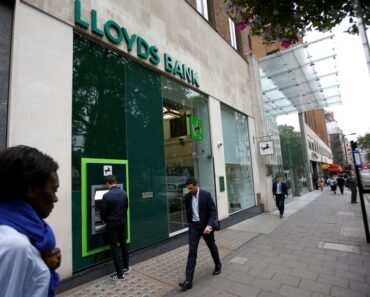This post was originally published on this site

Evergrande’s Hong Kong-listed shares tumbled more than 13% to a fresh four-year low, following Monday’s 16% plunge, while its bonds also dived, in onshore and offshore markets.
Local regulators in Shaoyang, a city in south central Hunan province, ordered a sales halt for two Evergrande residential projects, citing misappropriation of funds, according to government notices published late on Monday.
The sales suspension deepens worries that Evergrande, which owes roughly $90 billion by June, will struggle to pay its debts. News also emerged on Monday that a Chinese court had frozen one of Evergrande’s bank accounts at the request of creditor China Guangfa Bank Co.
“Evergrande’s external financing is restricted, so its debt repayment relies heavily on property sales,” Everbright Securities analyst Zhang Xu wrote in a report on Tuesday.
But revenue generation is challenging for Evergrande, whose real estate projects for sale are mostly located in China’s third- and fourth-tier cities, Zhang added.
Pessimism is spilling into the broader property sector, as China kept its benchmark lending rate unchanged at its July fixing on Tuesday, dashing hopes for a cut after a surprise lowering of bank reserve requirements last week.
China’s CSI300 real estate index fell 1.7% on Tuesday morning, following Monday’s 1.9% slump.
Although China has eased monetary policy slightly to help smaller companies and avert systemic risks, there will be sustained curbs on liquidity flowing into the property sector, said Cheng Hao, Shanghai-based fund manager at Fidelity International.
VICIOUS CYCLE
Wonnie Chu, managing director at GaoTeng Global Asset Management, said that surging bond yields for a developer risked creating a “vicious cycle” that could damage refinancing capabilities.
A Shanghai-traded Evergrande bond plunged 10% to 62 yuan versus its face value of 100 yuan on Tuesday morning. An Evergrande bond maturing in January 2023 also sank roughly 10% in Shenzhen, to 71.5 yuan. Bond prices move inversely to yields.
Chinese developers are struggling with slower sales and rising financing costs as Beijing restricts property loans and imposes policies under the “three red lines” guidance to force deleveraging in the sector.
“The housing situation in China is quite political because it becomes an affordability issue and a matter of social cohesion,” said Carlos Casanova, senior economist for Asia at Union Bancaire Privee.
The government will continue to keep curbs in place, “so we are going to see more defaults”.
Last week, Chinese real estate developer Sichuan Languang Development said it had overdue debts totalling 4.54 billion yuan.
China Fortune Land Development Co, which defaulted earlier this year, said on Tuesday that its overdue debts had increased to 73.2 billion yuan.



